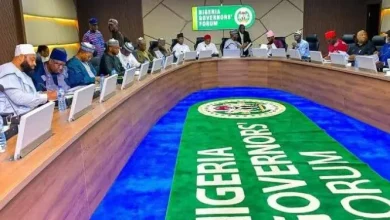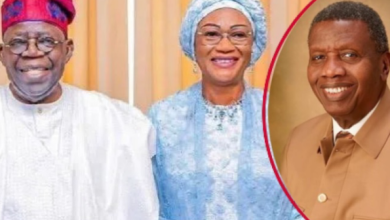Azikiwe put national interest above politics, unlike contemporary leaders – Mu’azu

Former Niger State Governor, Dr. Mu’azu Aliyu, has praised Nigeria’s first President, Dr. Nnamdi Azikiwe, for prioritizing the survival and unity of the nation over personal or partisan political ambitions.
Speaking at the sixth Annual Dr. Nnamdi Azikiwe Award Lecture, held in Abuja as part of the late statesman’s 121st posthumous birthday celebrations, Aliyu highlighted Azikiwe’s unique role in navigating the fragile early years of Nigeria’s independence.
The event, themed “The Power of Pan-African Unity: Strengthening Nigeria’s Role in African Integration and Development,” saw Aliyu, who chaired the National Planning Committee for the lecture, describe Azikiwe as a visionary leader whose pragmatic choices helped preserve the cohesion of the young federation.
“Zik was a Nigerian before the country officially existed.
”He championed independence and understood that political compromise was sometimes necessary to safeguard the nation,” Aliyu remarked.
“For example, prior to the 1966 coup, he collaborated with other political parties, assuming the ceremonial presidency to maintain unity.
”Later, during the Second Republic, similar alliances ensured Nigeria stayed one, ” he added.
Aliyu emphasised that love for one’s country, despite its challenges, is a core principle that Azikiwe consistently demonstrated.
He urged Nigerians to embrace patriotism and national pride, even when the circumstances of birth or hardship might make it difficult.
The keynote address was delivered by Dr. Mainasara Umar-Kogo, Chairman of the Code of Conduct Tribunal (CCT), who called for a moral revival and renewed commitment to Pan-African ideals.
Umar-Kogo reflected on the continent’s ongoing struggles with corruption, poor governance, and disunity, noting that the vision of leaders like Azikiwe, Kwame Nkrumah, and Nelson Mandela has yet to be fully realized.
“After Zik, what have we built? A nation divided by ethnic tensions, weakened by corruption, and lacking justice cannot lead Africa,” Umar-Kogo said.
“For Nigeria to be a cornerstone of African progress, we must first restore order, integrity, and unity at home. True Pan-Africanism requires principled leadership, ” he added.
Chief Chineme Onyeke, Director-General of the annual award, explained that the lecture series was conceived not only to honor Nigeria’s historical figures but also to inspire future generations.
This year’s theme, he said, aimed to position Nigeria as a leader in Africa’s resurgence.
Onyeke also revealed plans to establish the Zik Centre for Leadership and African Studies, envisioned as a hub for research and learning to cultivate ethical leadership across the continent.
“History remembers not the offices we hold, but the values we uphold and the institutions we leave behind, ” he said.
He appealed to the federal government to support the initiative, including the allocation of land for the centre.
Professor Uche Azikiwe, widow of the late leader, praised the organisers and urged a renewed effort to document Nigeria’s history and the contributions of leaders like Zik.
She highlighted that ignorance of history has contributed to contemporary challenges and emphasized the importance of educating young Nigerians about their nation’s foundation.
“If we understood our past and the sacrifices of our founding fathers, Nigeria could have been a very different country,” she said.
The lecture, attended by dignitaries, scholars, and civil society members, reinforced the enduring relevance of Azikiwe’s vision and the pressing need for integrity, unity, and visionary leadership in contemporary Nigeria.



